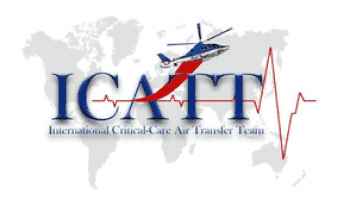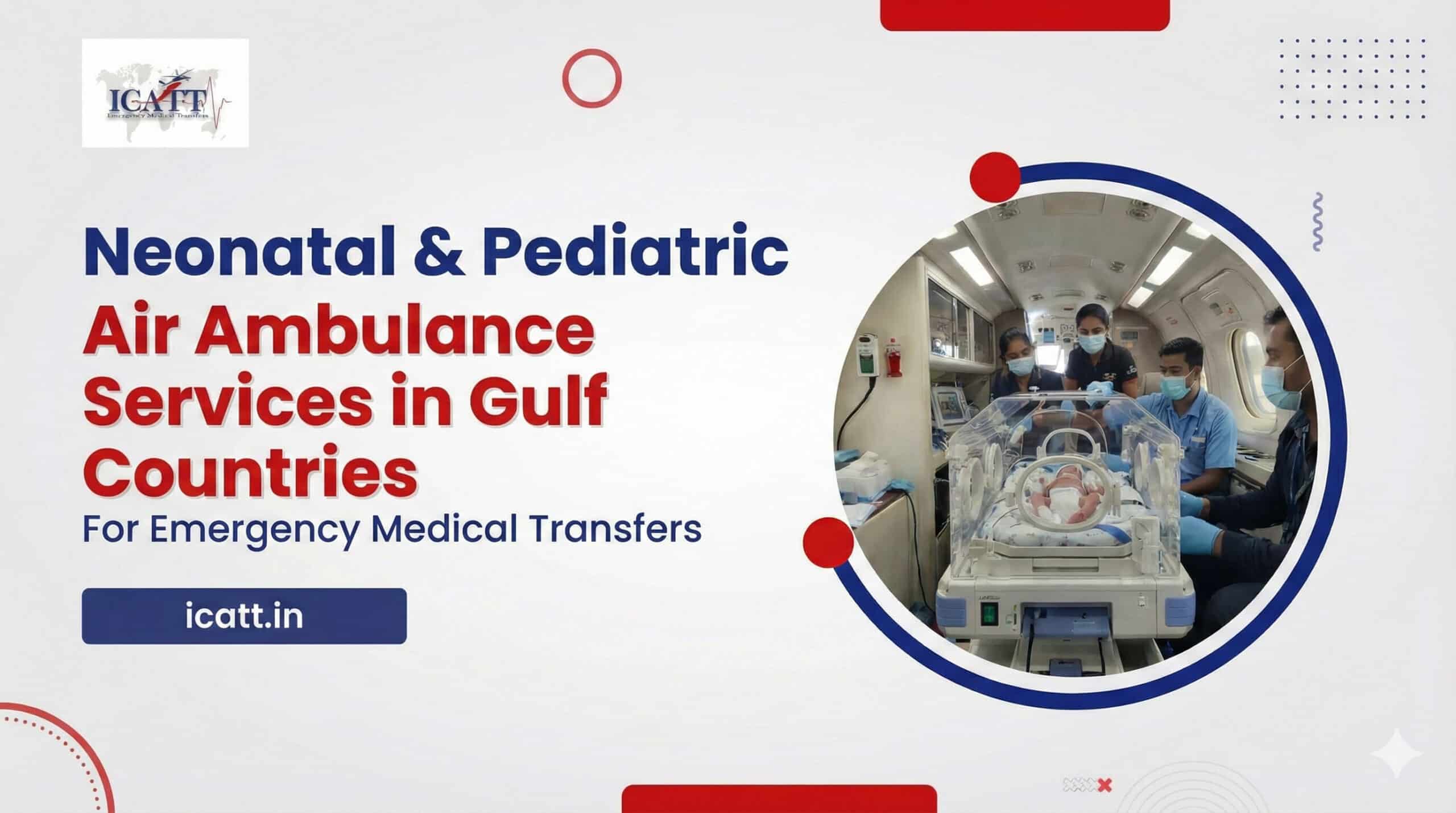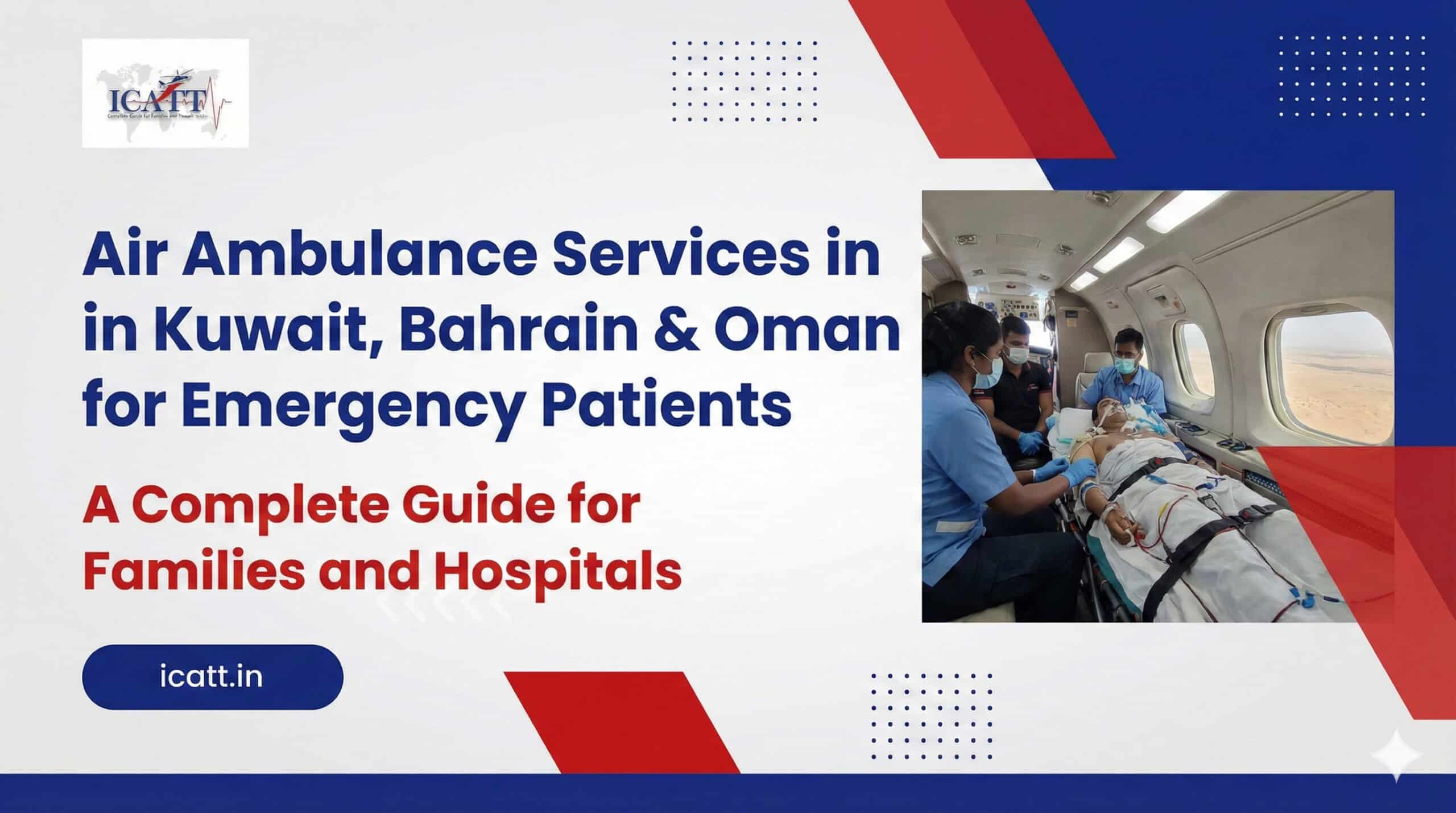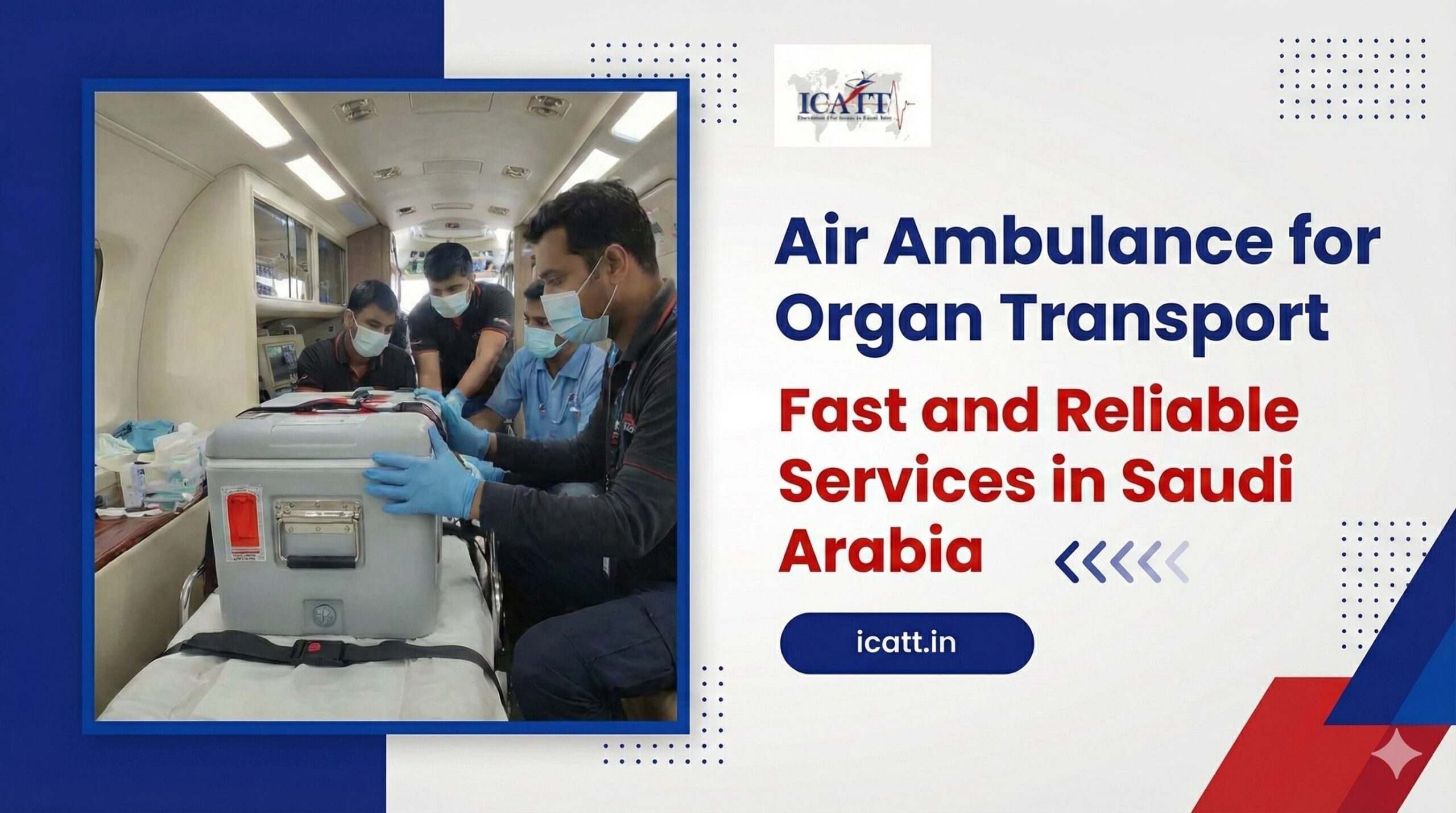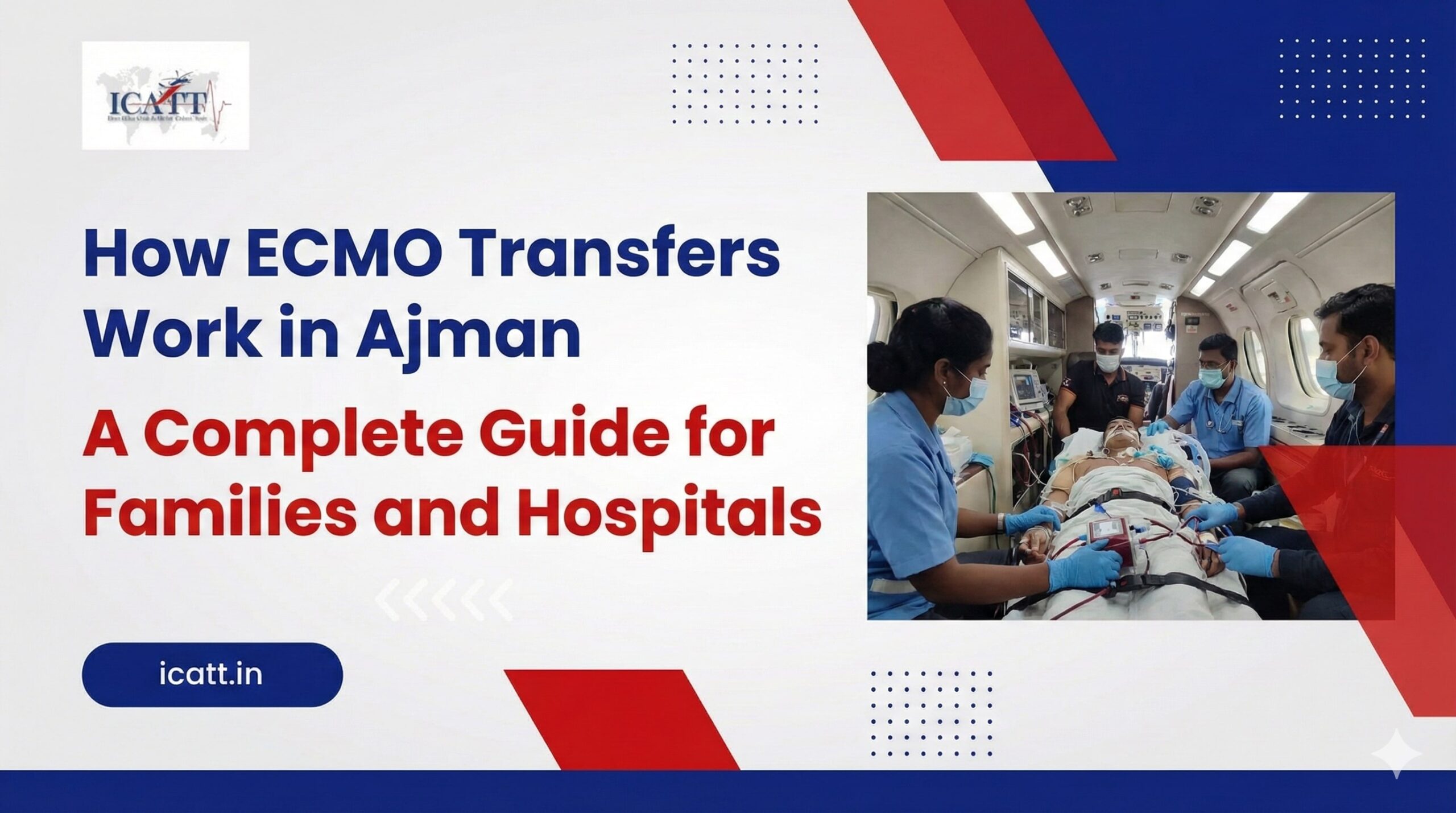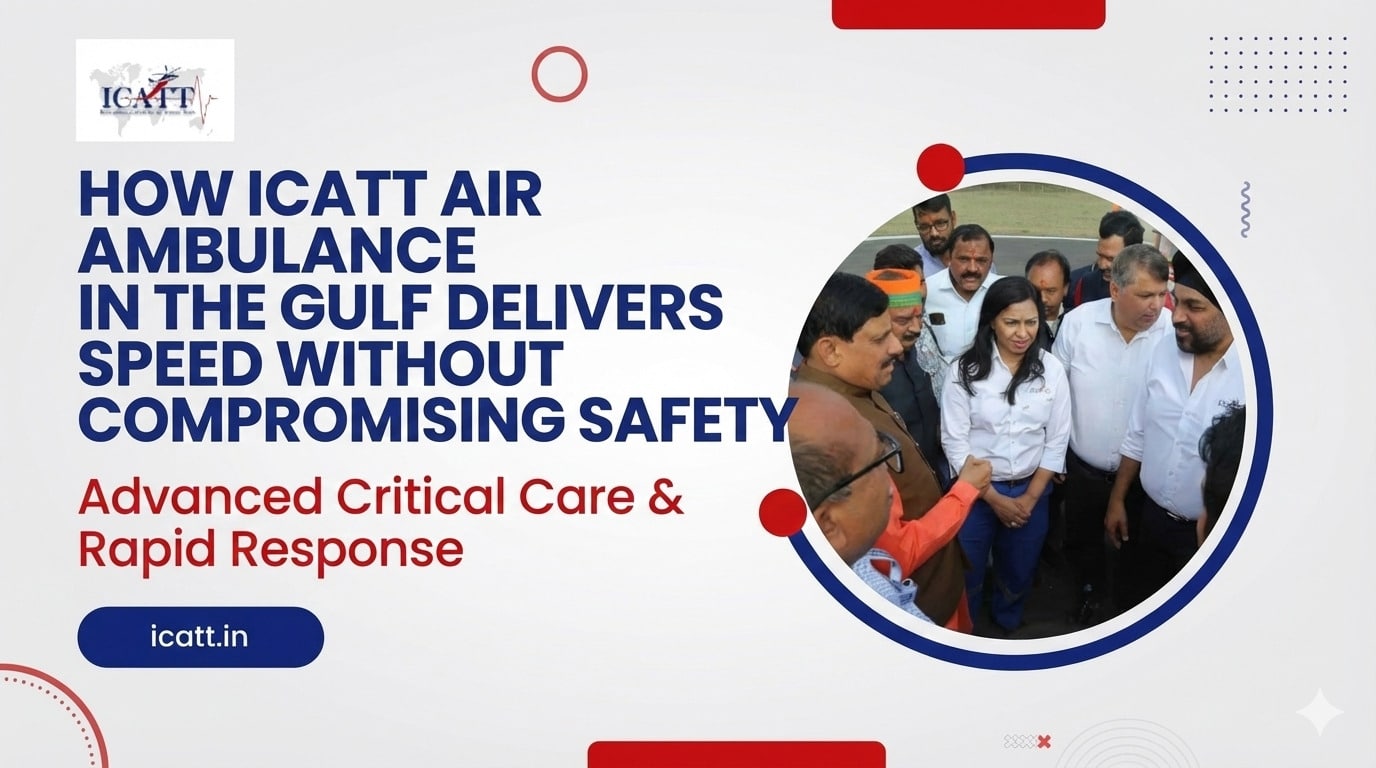In recent years, the demand for specialized medical air transport for neonatal and paediatric patients has grown significantly. According to the World Health Organization (WHO), an estimated 15 million babies are born prematurely each year, and many of these newborns require critical care that can only be provided at specialized medical centers. Additionally, 8 million children under the age of five succumb to preventable causes each year, emphasizing the need for timely and specialized interventions.
With global healthcare improving and becoming more accessible, there has been a corresponding increase in the use of air transport to facilitate the rapid transfer of young patients to specialized care centers. This underscores the importance of dedicated neonatal and paediatric air transport services that provide critical care during transit.
ICATT, a leader in international medical air transport services, plays a pivotal role in addressing these needs. The organization has a deep understanding of the challenges involved in transporting such vulnerable patients and ensures that all aspects of their care, from departure to arrival, are meticulously managed.
The Importance of Neonatal & Paediatric Air Transport
Neonatal and paediatric air transport is an essential service for critically ill newborns and children who need immediate medical intervention. In many cases, the local healthcare facilities might not have the necessary resources to handle complex medical conditions, necessitating the transport of these patients to more advanced medical centers. This form of air transport is also crucial for patients in remote or rural areas where the lack of specialized care facilities can be life-threatening.
Some key reasons for the growing importance of neonatal and paediatric air transport include:
- Immediate access to specialized care: Infants and children may require life-saving interventions only available at specialized centers.
- Minimizing the risk of deterioration: Speed is critical when transporting critically ill children, and air transport provides the quickest means of reaching expert care.
- Providing continuous medical care during transit: Transport teams equipped with state-of-the-art equipment ensure that patients receive constant monitoring and treatment during air transport.
However, this specialized form of medical air transport comes with unique challenges that require careful planning and execution.
Challenges in Neonatal & Paediatric Air Transport
Transporting neonatal and paediatric patients presents a set of challenges distinct from adult medical air transport. These challenges include the need for specialized medical equipment, highly trained staff, and a carefully controlled environment to ensure the safety and stability of the patient.
Specialized Equipment
Newborns and young children have different physiological needs compared to adults. For neonatal transport, equipment like incubators, ventilators, and monitors must be tailored to the size and fragility of the patient. These systems need to be compact, reliable, and suitable for use in the confined space of an air ambulance. Similarly, paediatric patients may require specialized infusion pumps, oxygen systems, and cardiovascular support devices.
Trained Medical Teams
Medical personnel trained in paediatric and neonatal care must accompany the patient during transport. These teams include paediatricians, neonatal nurses, and respiratory therapists who are adept at providing advanced life support for young patients. The team must be ready to handle any medical emergency that may arise during the flight, including respiratory distress, cardiac arrest, or sudden deterioration of the patient’s condition.
Maintaining a Controlled Environment
The environmental conditions aboard an air ambulance can be harsh for young patients. Factors like air pressure, temperature, and humidity must be carefully monitored and adjusted to prevent complications. For instance, preterm infants are particularly vulnerable to fluctuations in temperature, making the use of temperature-regulated incubators essential.
Coordinating with Healthcare Facilities
Neonatal and paediatric medical air transport also requires seamless coordination between the sending and receiving healthcare facilities. Medical teams must ensure that the patient’s condition is stabilized before transport and that the receiving hospital is fully prepared to continue treatment upon arrival.
How ICATT Ensures Safe and Specialized Care
ICATT (International Critical Air Transfer Team) is at the forefront of providing specialized air transport services for neonatal and paediatric patients. The organization’s approach to air medical transport is centered on safety, expertise, and rapid response. Here’s how ICATT addresses the challenges of neonatal and paediatric air transport and ensures the best possible outcomes for its young patients:
State-of-the-Art Equipment
ICATT’s air ambulance services are equipped with advanced neonatal and paediatric care systems, including mobile incubators, specialized ventilators, and real-time monitoring equipment. These tools ensure that critically ill newborns and children receive continuous care throughout the journey. ICATT’s equipment is designed to provide an ICU-level environment, ensuring that young patients are stable and safe during transit.
Highly Skilled Medical Teams
The medical teams at ICATT are composed of paediatric specialists, neonatologists, and respiratory therapists with extensive experience in critical care. These teams undergo rigorous training to manage complex cases in the air and are well-versed in handling medical emergencies that may arise during transport. ICATT’s medical crew can perform advanced life support interventions, ensuring that even the most fragile patients are in safe hands.
24/7 Availability and Rapid Response
ICATT offers 24/7 services to ensure that patients can be transported as soon as the need arises. This rapid response capability is crucial when time is of the essence. ICATT’s dispatch teams are skilled at organizing and executing transport missions quickly and efficiently, ensuring that there are no delays in transferring patients to specialized medical facilities.
Maintaining a Controlled and Safe Environment
ICATT’s air ambulance services are designed to maintain a controlled environment that is conducive to the needs of neonatal and paediatric patients. Temperature regulation, pressure control, and humidity monitoring ensure that patients remain stable throughout the journey. Additionally, ICATT’s pilots and aviation staff are trained to minimize turbulence and maintain smooth flight conditions, reducing stress on the patient.
Seamless Coordination with Healthcare Providers
ICATT coordinates closely with both the referring and receiving medical facilities to ensure smooth handoffs and continuity of care. The team ensures that the receiving hospital is prepared to take over the patient’s care immediately upon arrival, reducing the time spent in transition and minimizing the risk of complications.
Global Reach and Expertise
As an international medical air transport service, ICATT operates across multiple regions, providing services to remote and underserved areas. Their global network ensures that patients can be transferred from any location to world-class medical centers, no matter how distant or challenging the destination.
Conclusion
Neonatal and paediatric air transport is a highly specialized field that requires precise planning, advanced equipment, and expert medical teams to ensure the safety of the most vulnerable patients. The challenges involved in transporting neonatal and paediatric patients—such as the need for specialized equipment, highly skilled medical personnel, and the ability to maintain a stable environment—underscore the importance of organizations like ICATT.
ICATT’s dedication to providing world-class care, its commitment to safety, and its ability to coordinate effectively with healthcare providers make it a leader in neonatal and paediatric air transport. For families facing the overwhelming challenge of transferring their critically ill child to a specialized medical center, ICATT provides a lifeline, ensuring that every young patient receives the specialized care they need, no matter the distance.
By combining expertise with compassion, ICATT continues to set the standard for neonatal and paediatric air transport, ensuring that the smallest and most fragile patients are given the best chance of survival.
